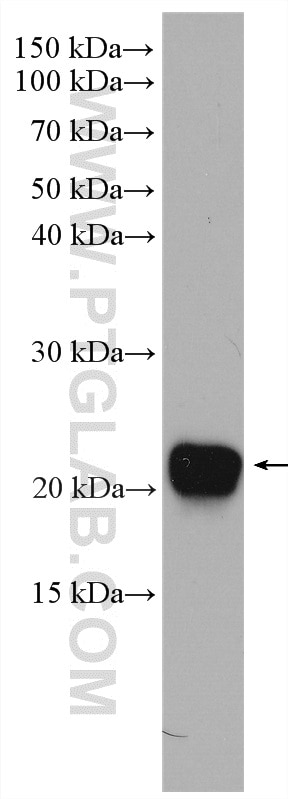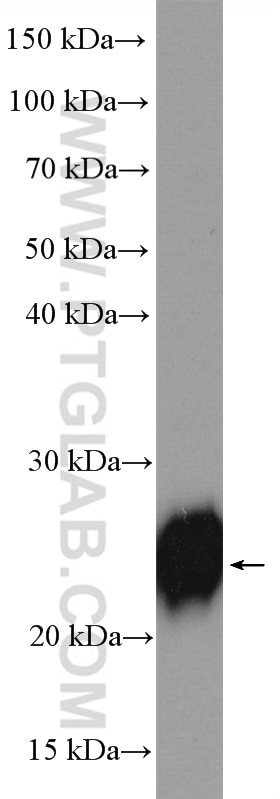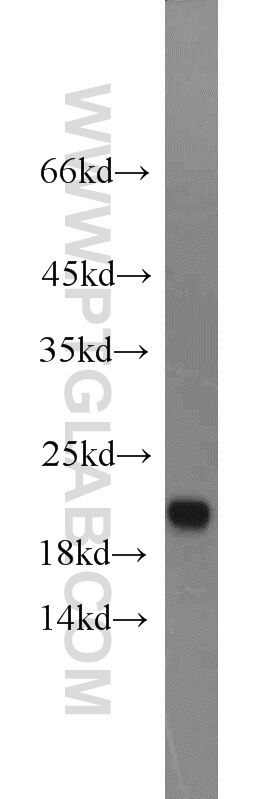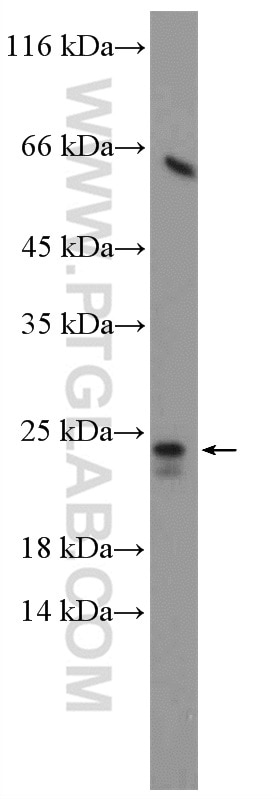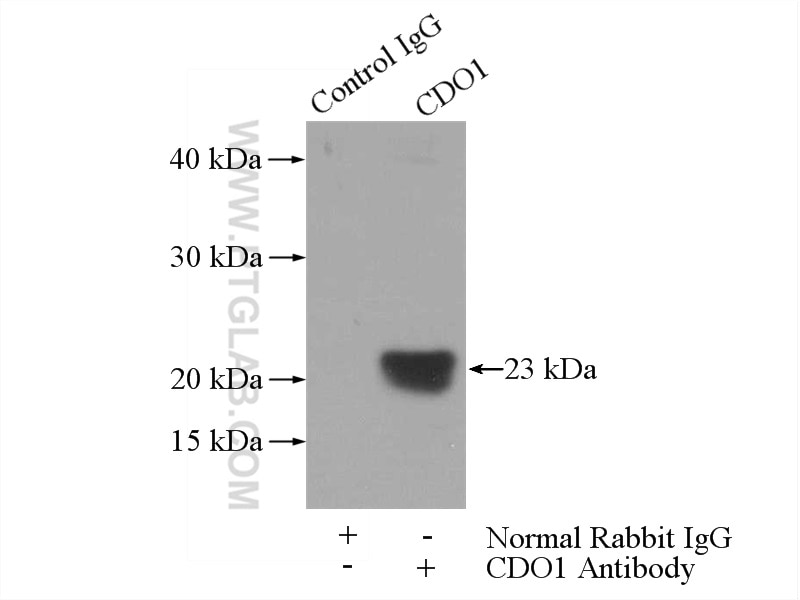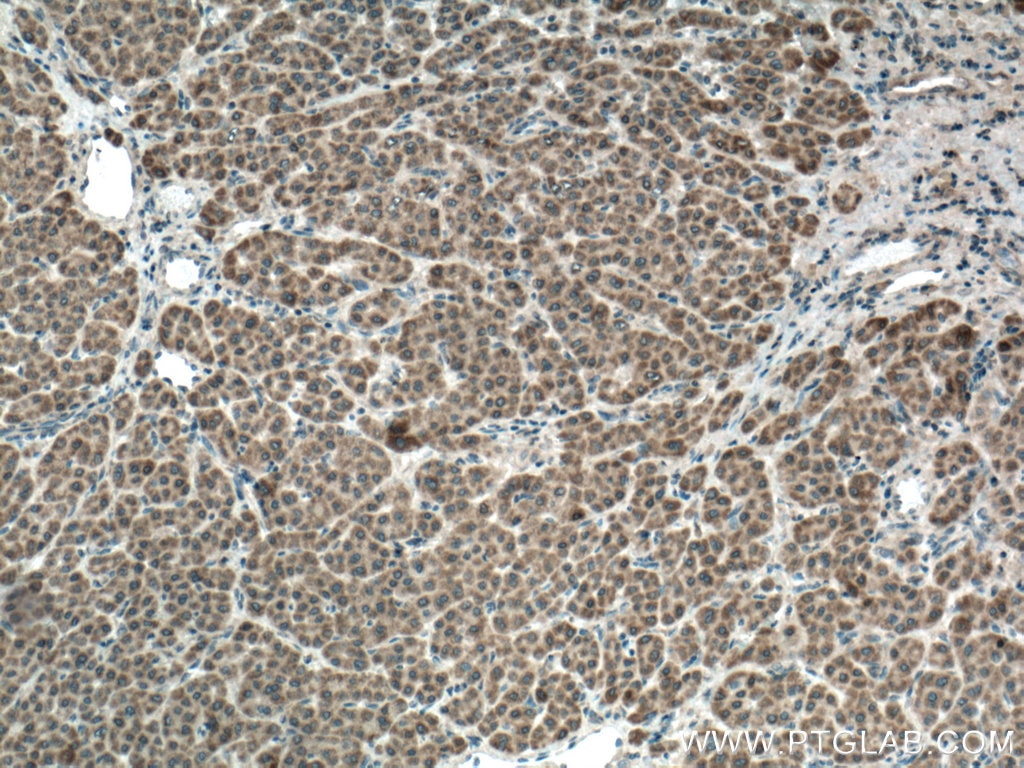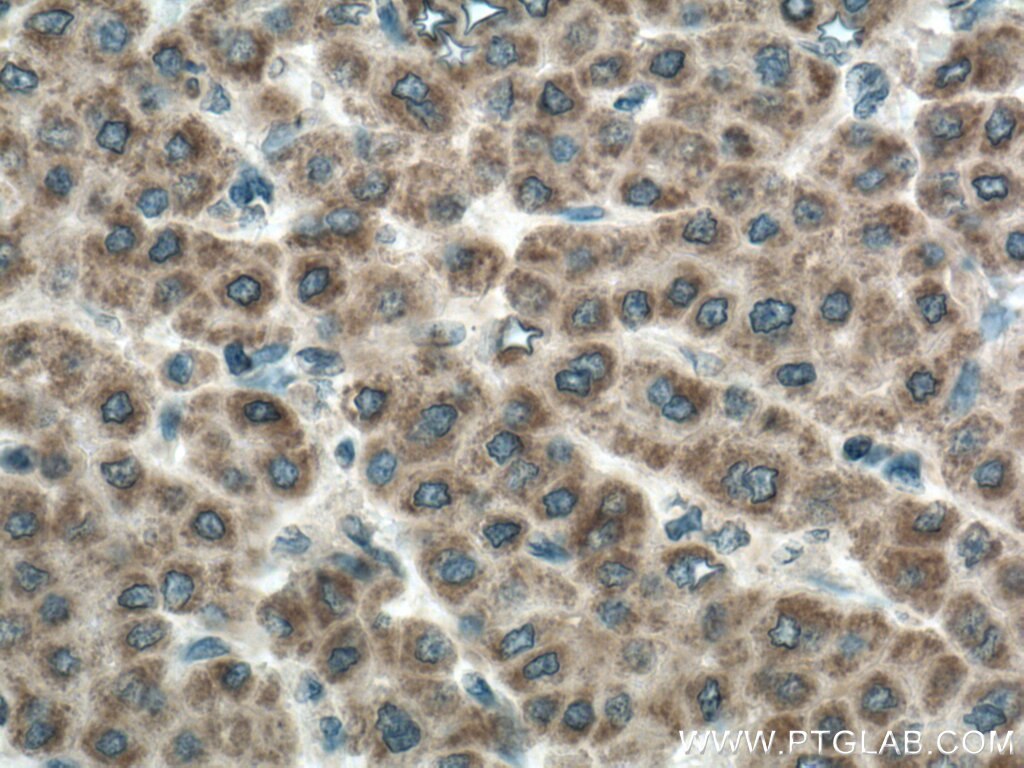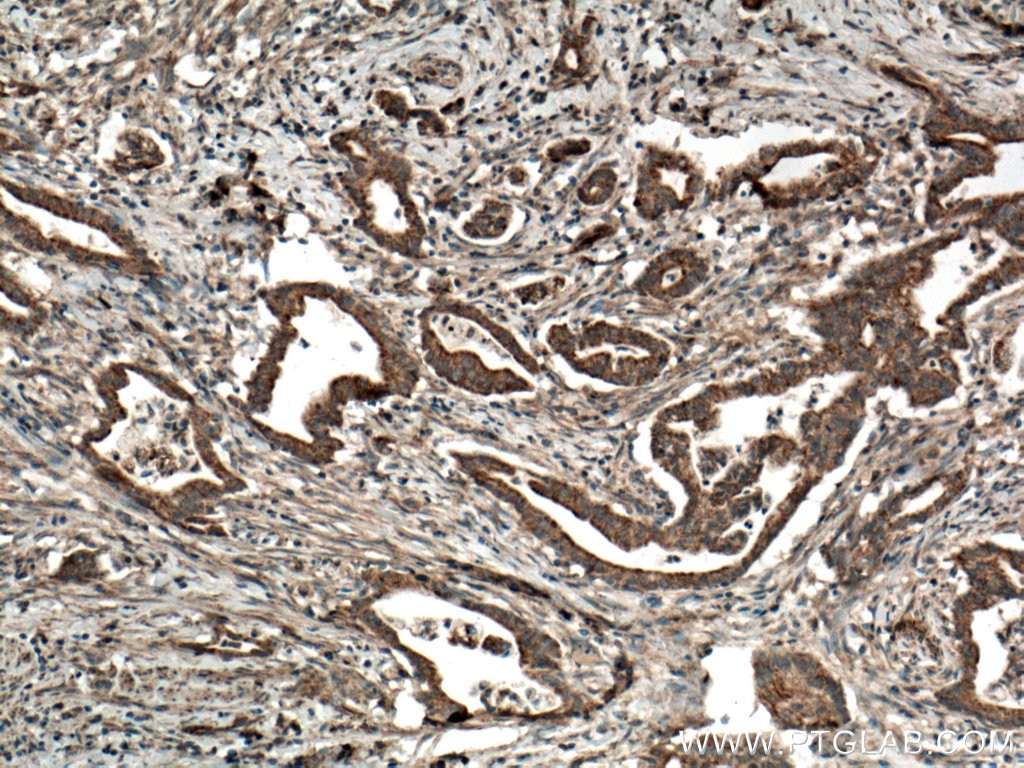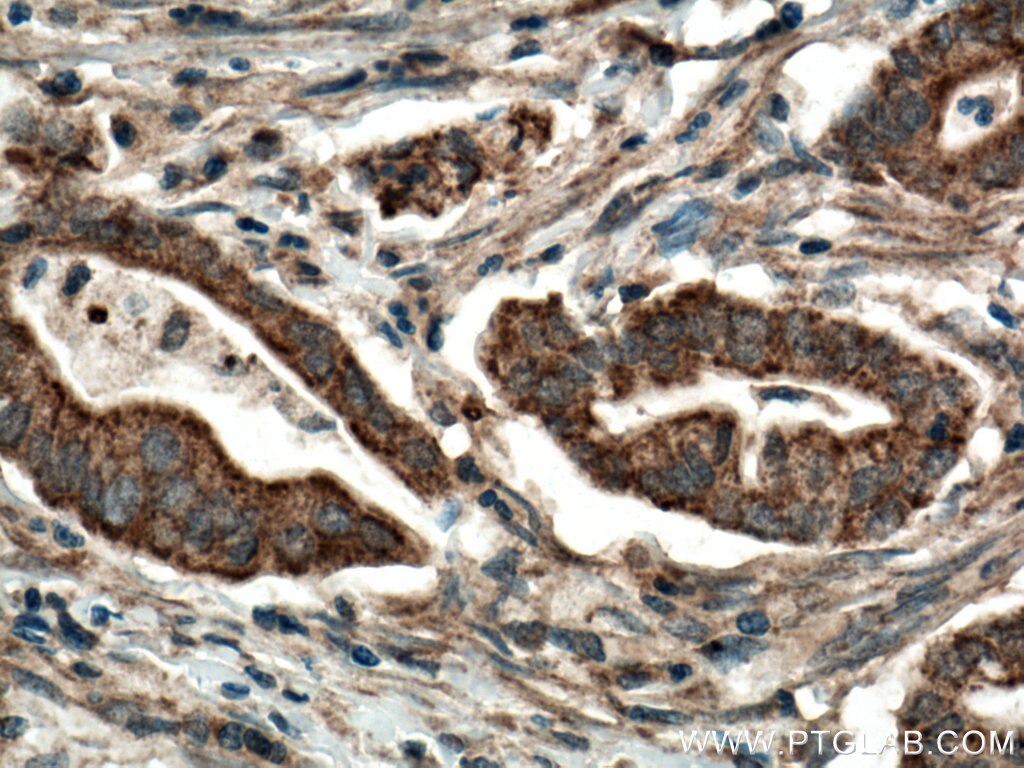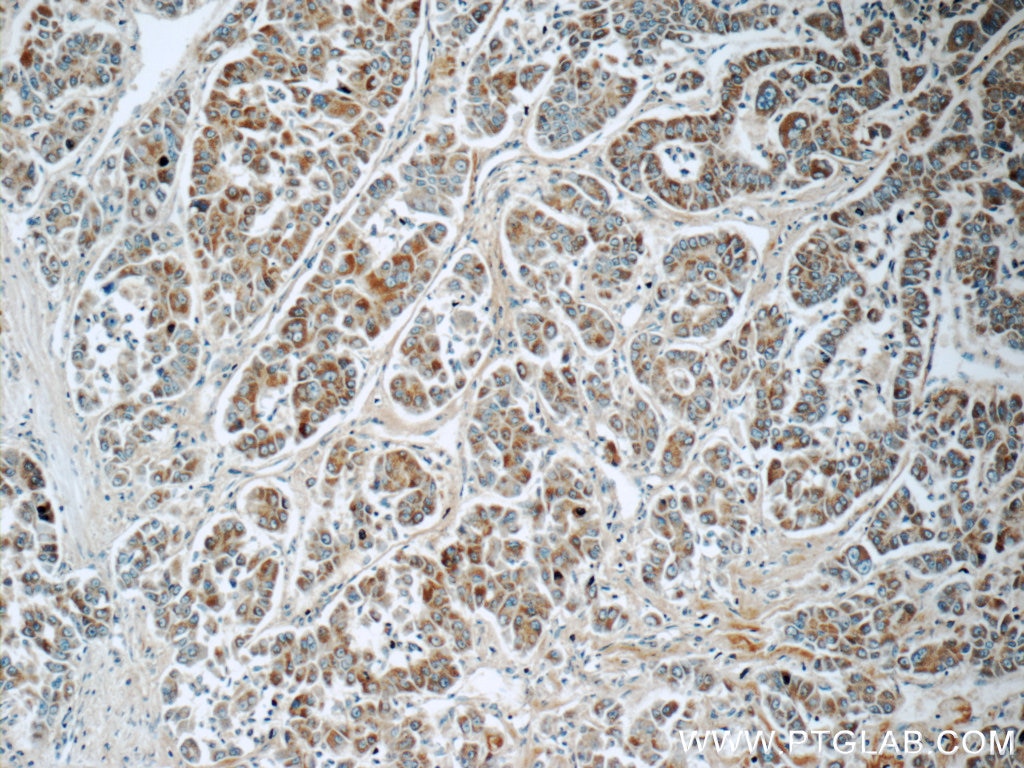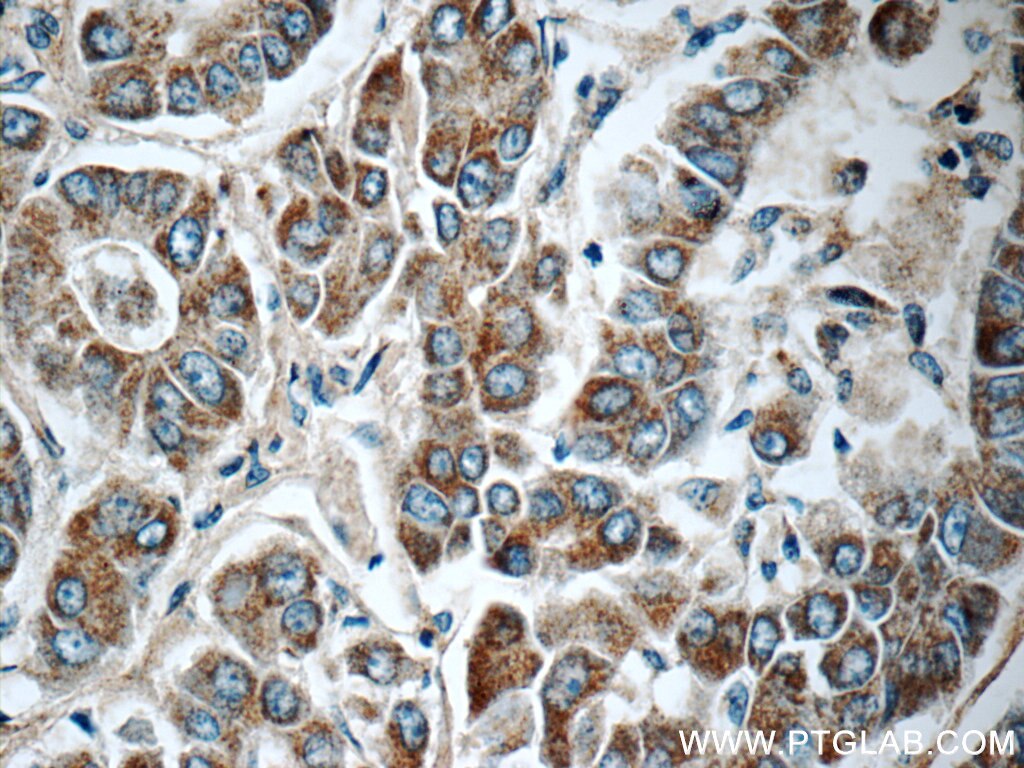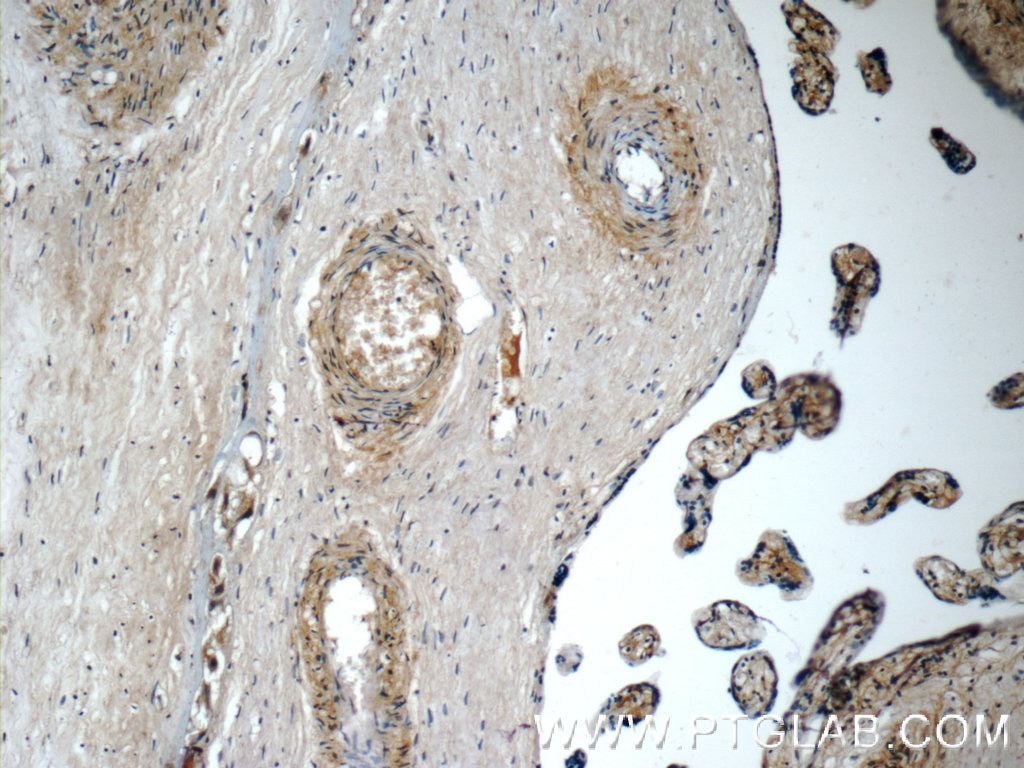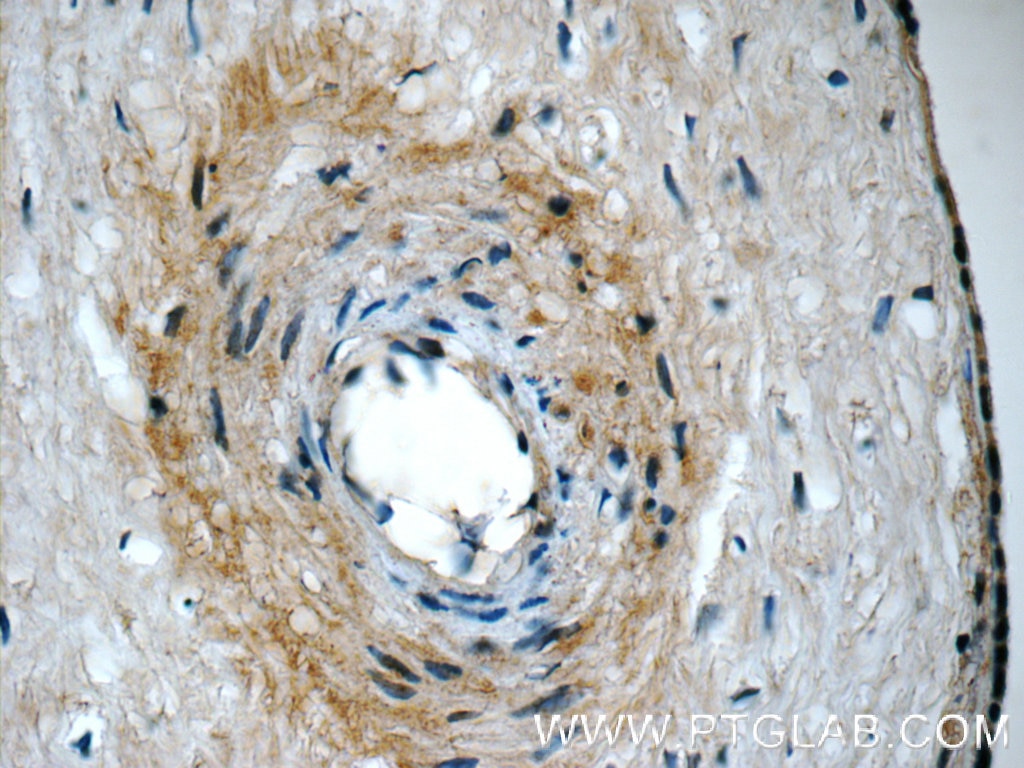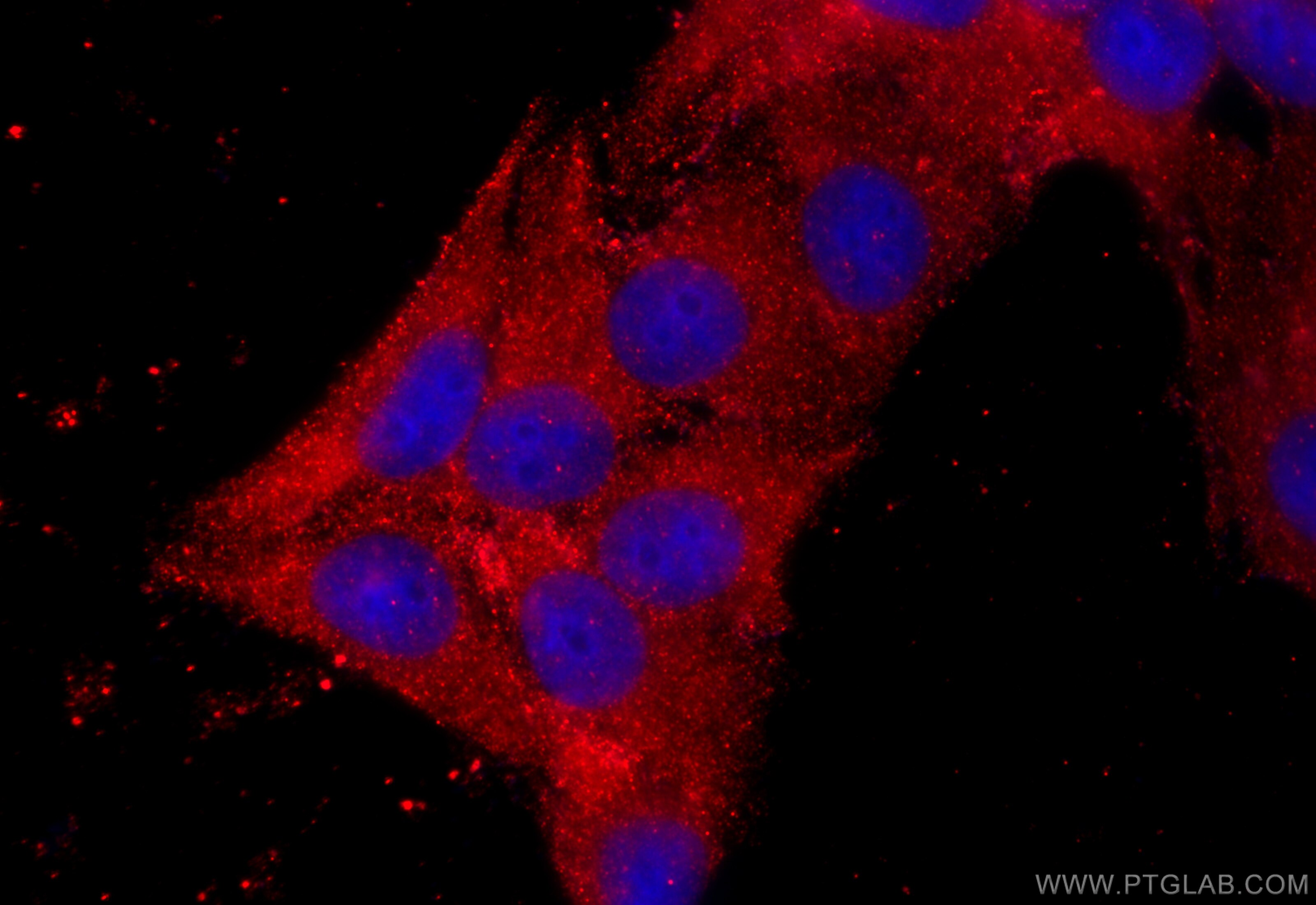- Phare
- Validé par KD/KO
Anticorps Polyclonal de lapin anti-CDO1
CDO1 Polyclonal Antibody for WB, IHC, IF/ICC, IP, ELISA
Hôte / Isotype
Lapin / IgG
Réactivité testée
Humain, porc, rat, souris
Applications
WB, IHC, IF/ICC, IP, ELISA
Conjugaison
Non conjugué
N° de cat : 12589-1-AP
Synonymes
Galerie de données de validation
Applications testées
| Résultats positifs en WB | tissu hépatique de souris, tissu hépatique de rat |
| Résultats positifs en IP | tissu hépatique de souris |
| Résultats positifs en IHC | tissu de cancer du foie humain, tissu de cancer du pancréas humain, tissu placentaire humain il est suggéré de démasquer l'antigène avec un tampon de TE buffer pH 9.0; (*) À défaut, 'le démasquage de l'antigène peut être 'effectué avec un tampon citrate pH 6,0. |
| Résultats positifs en IF/ICC | cellules HepG2, |
Dilution recommandée
| Application | Dilution |
|---|---|
| Western Blot (WB) | WB : 1:1000-1:6000 |
| Immunoprécipitation (IP) | IP : 0.5-4.0 ug for 1.0-3.0 mg of total protein lysate |
| Immunohistochimie (IHC) | IHC : 1:50-1:500 |
| Immunofluorescence (IF)/ICC | IF/ICC : 1:200-1:800 |
| It is recommended that this reagent should be titrated in each testing system to obtain optimal results. | |
| Sample-dependent, check data in validation data gallery | |
Applications publiées
| KD/KO | See 1 publications below |
| WB | See 14 publications below |
| IHC | See 8 publications below |
| IF | See 1 publications below |
Informations sur le produit
12589-1-AP cible CDO1 dans les applications de WB, IHC, IF/ICC, IP, ELISA et montre une réactivité avec des échantillons Humain, porc, rat, souris
| Réactivité | Humain, porc, rat, souris |
| Réactivité citée | rat, Humain, souris |
| Hôte / Isotype | Lapin / IgG |
| Clonalité | Polyclonal |
| Type | Anticorps |
| Immunogène | CDO1 Protéine recombinante Ag3294 |
| Nom complet | cysteine dioxygenase, type I |
| Masse moléculaire calculée | 200 aa, 23 kDa |
| Poids moléculaire observé | 23 kDa |
| Numéro d’acquisition GenBank | BC024241 |
| Symbole du gène | CDO1 |
| Identification du gène (NCBI) | 1036 |
| Conjugaison | Non conjugué |
| Forme | Liquide |
| Méthode de purification | Purification par affinité contre l'antigène |
| Tampon de stockage | PBS with 0.02% sodium azide and 50% glycerol |
| Conditions de stockage | Stocker à -20°C. Stable pendant un an après l'expédition. L'aliquotage n'est pas nécessaire pour le stockage à -20oC Les 20ul contiennent 0,1% de BSA. |
Informations générales
CDO1(cysteine dioxygenase type 1) is also named as CDO and belongs to the cysteine dioxygenase family. It is an enzyme that adds molecular oxygen to the sulfur of cysteine, converting the thiol to a sulfinic acid known as cysteinesulfinic acid (3-sulfinoalanine) and CDO1 is one of the most highly regulated metabolic enzymes responding to diet(PMID:19011731). The expression of CDO can significantly decrease the level of intracellular cysteine and this reduction is also associated with a decrease in total glutathione levels(PMID:17327371). Cysteine dioxygenase (CDO) plays a critical role in the regulation of cellular cysteine concentration andmultiple forms of CDO (23 kDa, 25 kDa, and 68 kDa) have been claimed based upon separation and detection using SDS-PAGE/western blotting(PMID: 14752623).
Protocole
| Product Specific Protocols | |
|---|---|
| WB protocol for CDO1 antibody 12589-1-AP | Download protocol |
| IHC protocol for CDO1 antibody 12589-1-AP | Download protocol |
| IF protocol for CDO1 antibody 12589-1-AP | Download protocol |
| IP protocol for CDO1 antibody 12589-1-AP | Download protocol |
| Standard Protocols | |
|---|---|
| Click here to view our Standard Protocols |
Publications
| Species | Application | Title |
|---|---|---|
Cell Death Discov Cysteine dioxygenase 1 attenuates the proliferation via inducing oxidative stress and integrated stress response in gastric cancer cells | ||
Int J Biol Sci Ferroptosis-associated molecular classification characterized by distinct tumor microenvironment profiles in colorectal cancer. | ||
J Ethnopharmacol Integration of metabolomics and transcriptomics to reveal anti-chronic myocardial ischemia mechanism of Gualou Xiebai decoction. | ||
Ann Surg Oncol Promoter DNA Hypermethylation of the Cysteine Dioxygenase 1 (CDO1) Gene in Intraductal Papillary Mucinous Neoplasm (IPMN). | ||
Cell Mol Neurobiol Taurine Alleviates Chronic Social Defeat Stress-Induced Depression by Protecting Cortical Neurons from Dendritic Spine Loss. |
